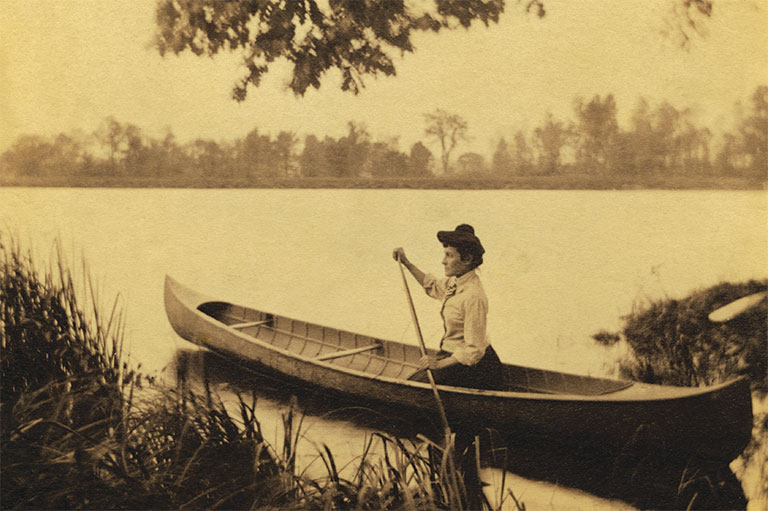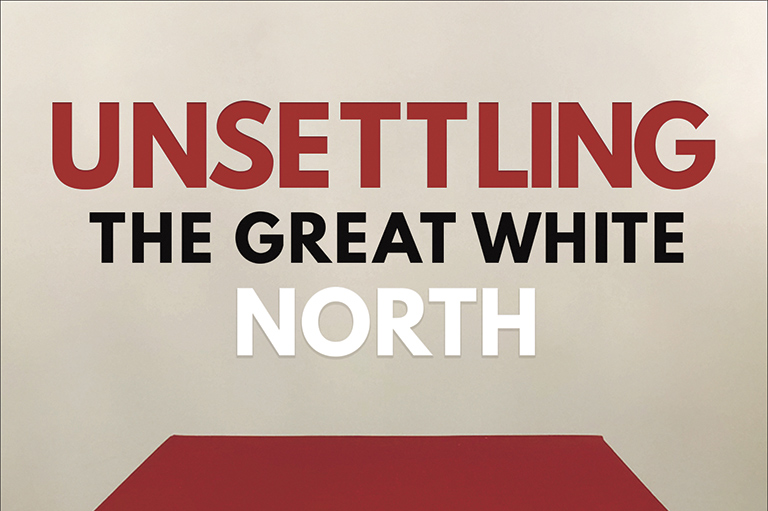2020 Summer Reading Guide
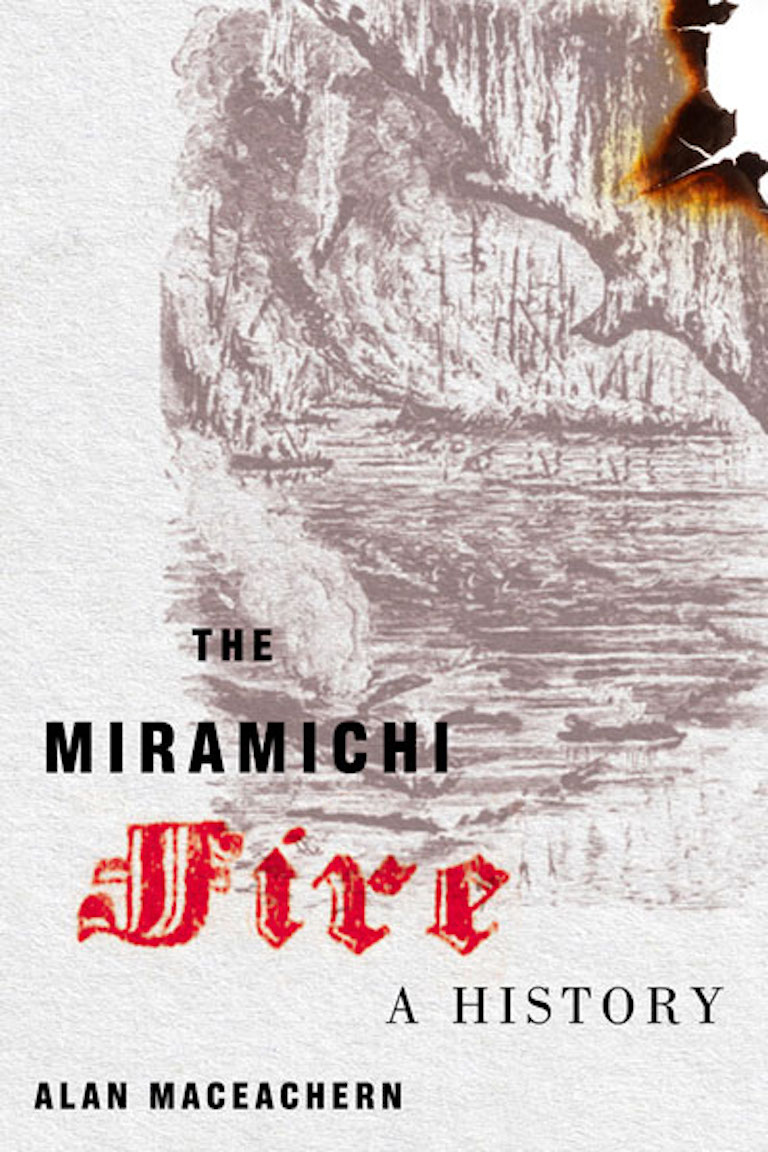
The Miramichi Fire
A History
by Alan MacEachern
On 7 October 1825, a massive forest fire swept through northeastern New Brunswick, devastating entire communities. It was the largest wildfire ever to occur within the British Empire, one of the largest in North American history, and the largest along the eastern seaboard. The Miramichi Fire vividly reconstructs nineteenth-century Canada's greatest natural disaster, meditating on how it was lost to history.
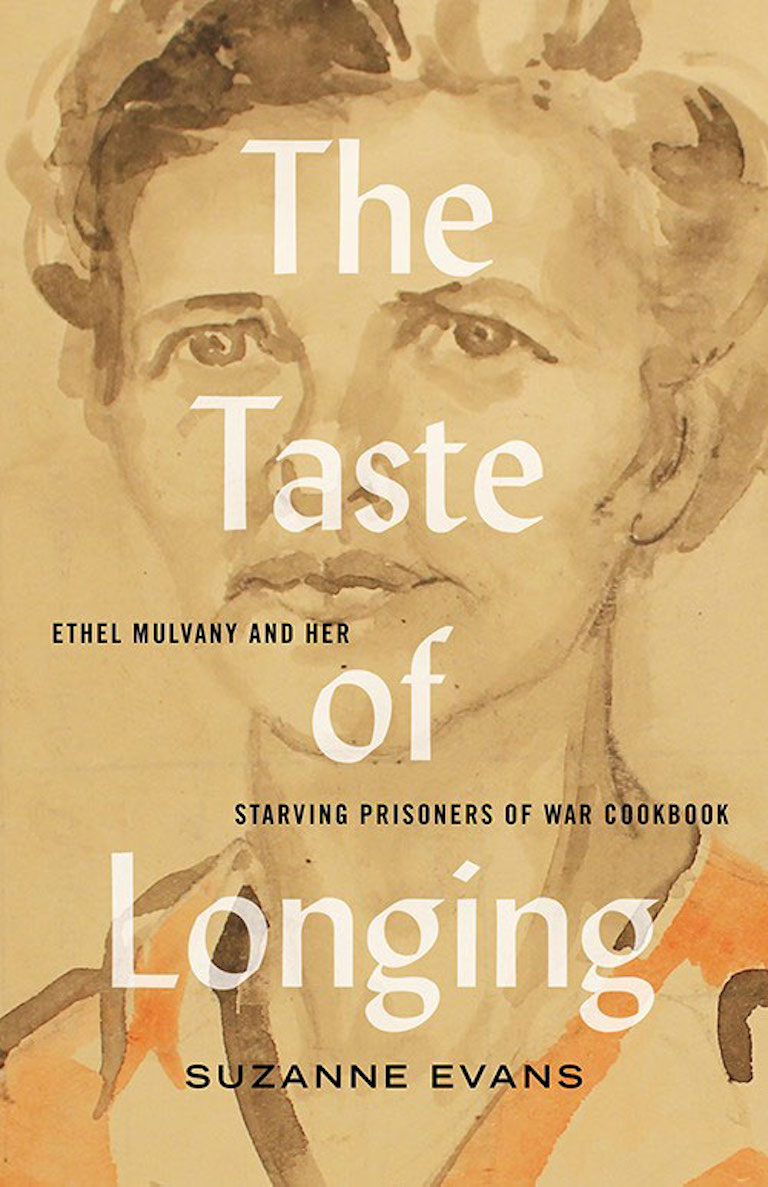
The Taste of Longing
Ethel Mulvany and her Starving Prisoners of War Cookbook
by Suzanne Evans
In this novelistic, immersive biography, Suzanne Evans presents a truly individual account of the Second World War through the eyes of Ethel Mulvany — mercurial, enterprising, combative, stubborn, and wholly herself. As a prisoner, she devours dog biscuits and book spines, befriends spiders and smugglers, and endures torture and solitary confinement. As a free woman back in Canada, she fights to build a life for herself in the midst of trauma and burgeoning mental illness.
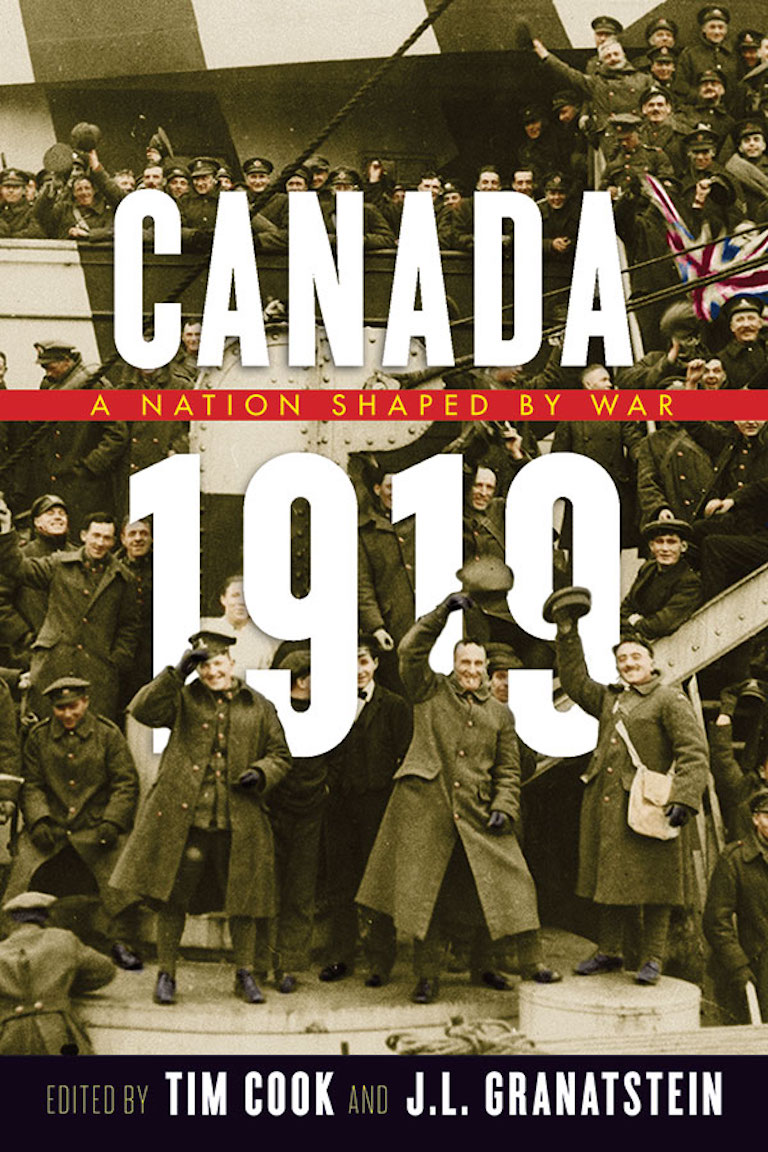
Canada 1919
A Nation Shaped by War
Edited by Tim Cook and J.L. Granatstein
With compelling insight, Canada 1919 examines the year following the Great War — a war that was, for Canada, completely unexpected in its magnitude. In the midst of relief that the killing had ended, economic and political tensions were fraught as the survivors attempted to right the country and chart a path into the future.
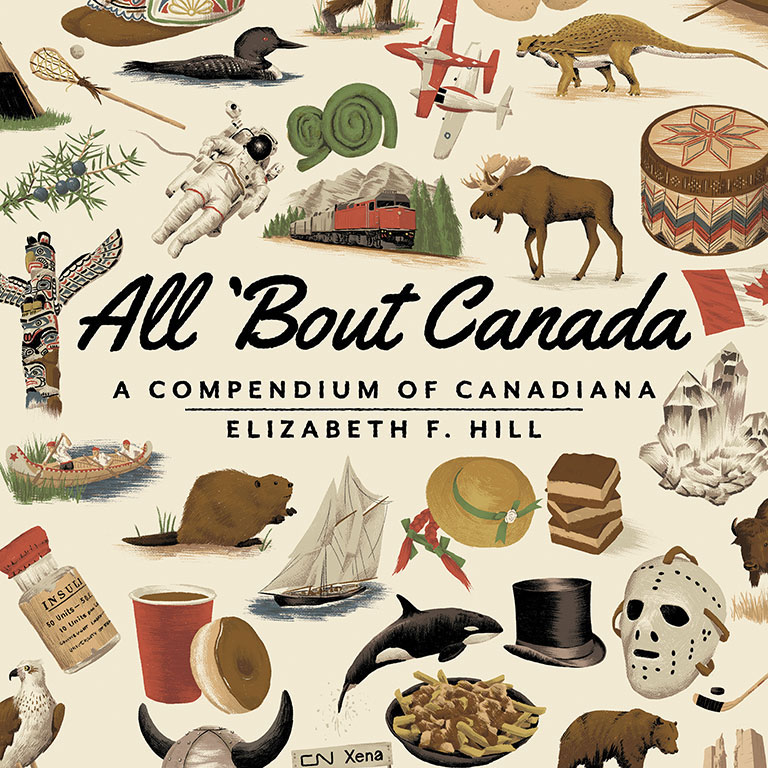
All ‘Bout Canada
A Compendium of Canadiana
by Elizabeth F. Hill
All ’Bout Canada is a fun, informative celebration of Canada that will both educate and entertain a diverse readership. Featuring dictionary-style entries and witty poems for each letter in the alphabet, this collection of Canadian facts and anecdotes from “Aurora Borealis” to “Zellers” makes an excellent gift for avid and reluctant readers as well as parents, teachers, and librarians.
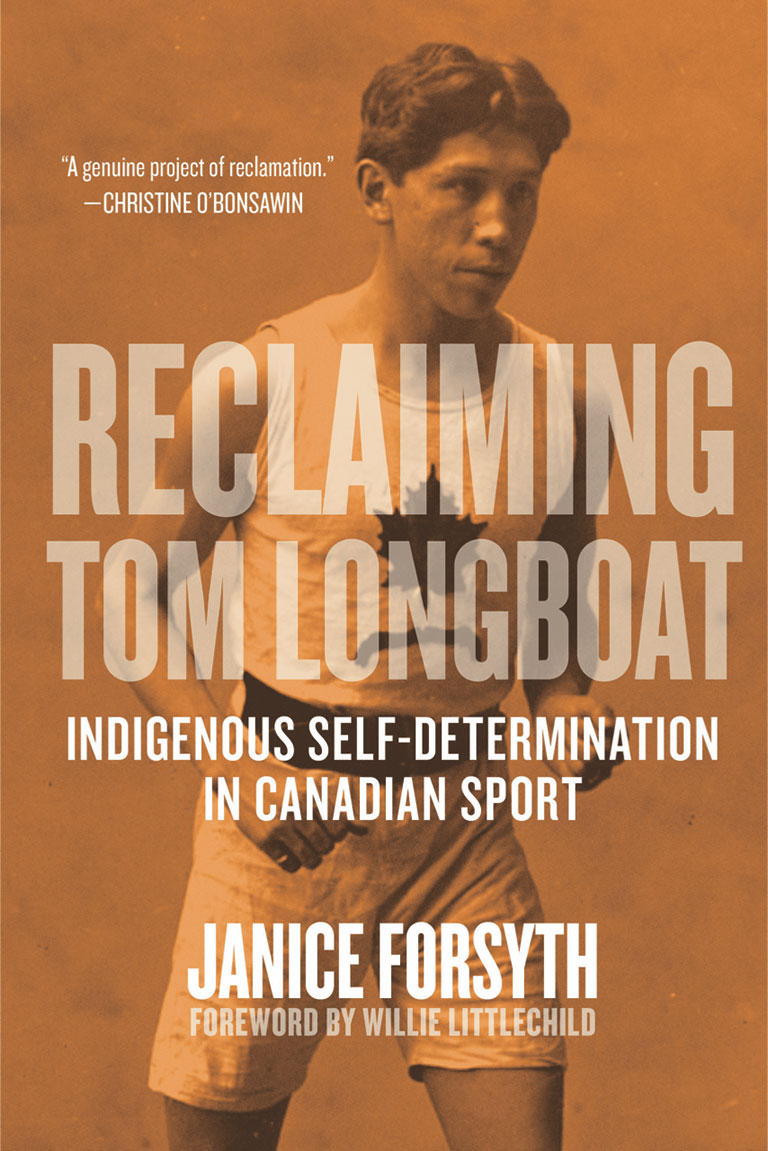
Reclaiming Tom Longboat
Indigenous Self-Determination in Canadian Sport
by Janice Forsyth
Reclaiming Tom Longboat recounts the history of Indigenous sport in Canada through the lens of the prestigious Tom Longboat Awards, shedding light on a significant yet overlooked aspect of Canadian policy and Crown-Indigenous relations. Janice Forsyth critically assesses the state’s role in policing Indigenous bodies and identities through sport, from the assimilationist sporting regulations of residential schools to the present-day exclusion of Indigenous activities from mainstream sports.
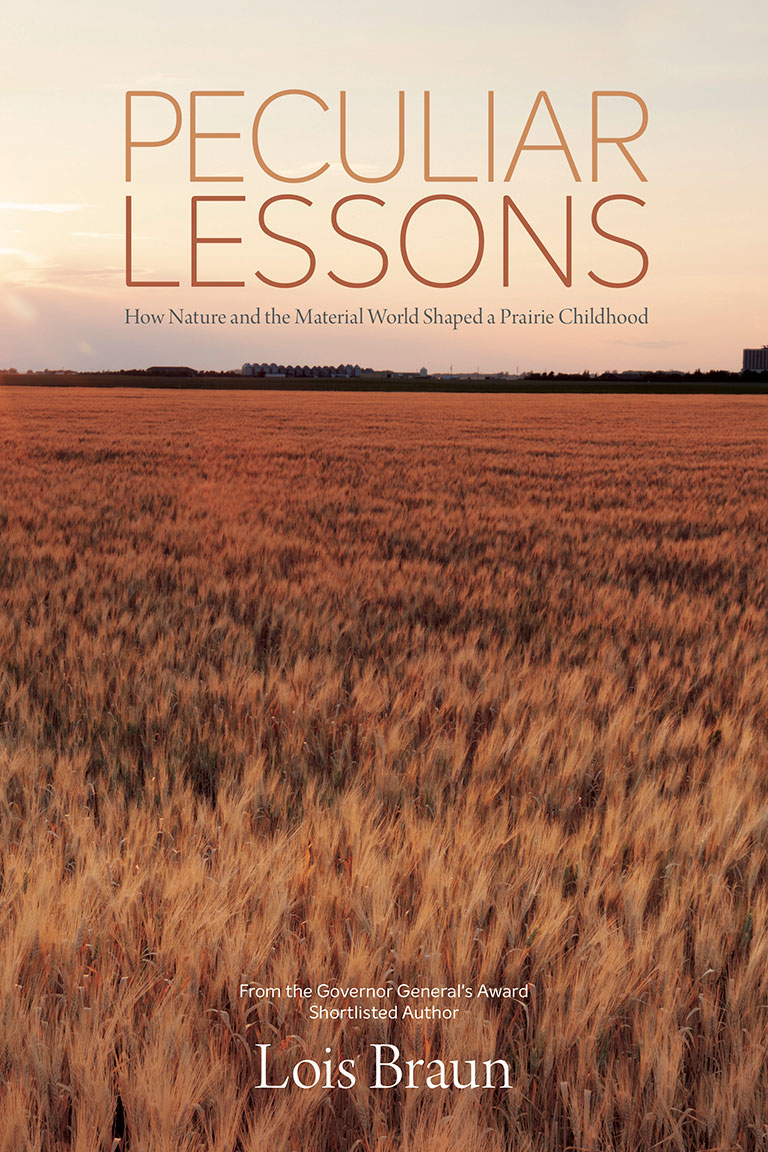
Peculiar Lessons
How Nature and the Material World Shaped a Prairie Childhood
by Lois Braun
Part memoir, part social history, this collection of ten essays explores the various physical and natural elements that form the backdrop to Braun’s memories of growing up mid-20th century on a farm in southern Manitoba. The book highlights the value and beauty of the simple components of our surroundings that we take for granted growing up and reveals how the fascination with a “simple” thing can become a lifelong pursuit that sustains one’s artistic and spiritual needs.
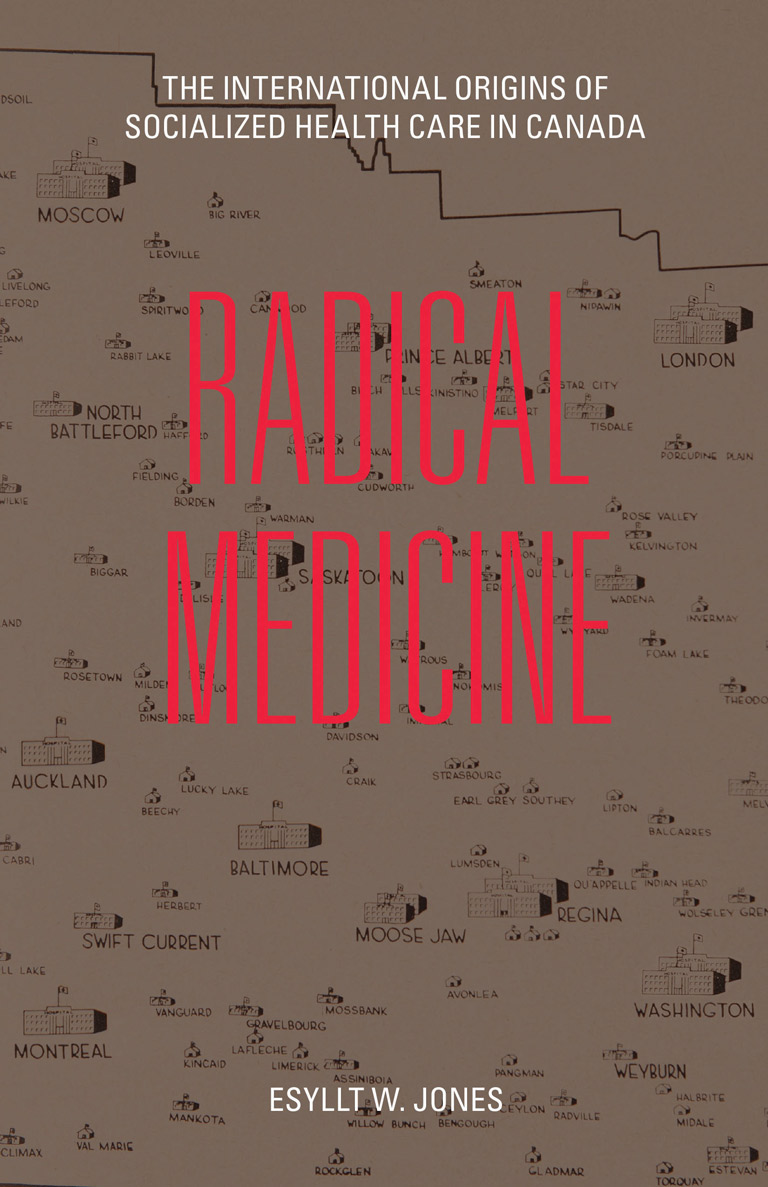
Radical Medicine
The International Origins of Socialized Health Care in Canada
by Esyllt W. Jones
Radical Medicine uses the personal histories of international health advocates, the history of ideas, policy debates, and political insights, as well as the role of emotion as a central force in social movements. Challenging dominant historical narratives that often depoliticize medicare’s origins, Esyllt W. Jones shows that we can only understand medicare’s history in a world-historical context.
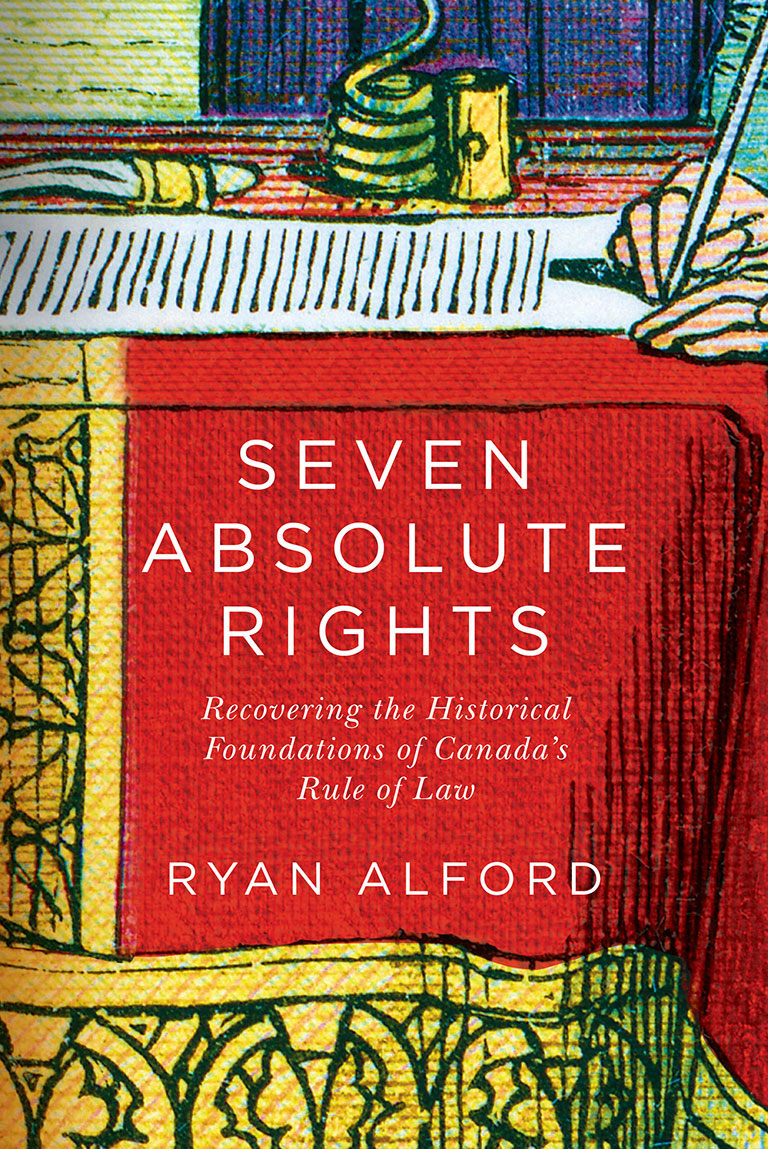
Seven Absolute Rights
Recovering the Historical Foundations of Canada’s Rule of Law
by Ryan Alford
Seven Absolute Rights surveys the historical foundations of Canada's rule of law and the ways they reinforce the Constitution. Ryan Alford’s reconstruction includes a detailed examination of two pre-Confederation crises: the rebellions of 1837–38 and the riots of 1849, which, as he demonstrates, provide the missing constitutionalist context to the framing of the British North America Act.
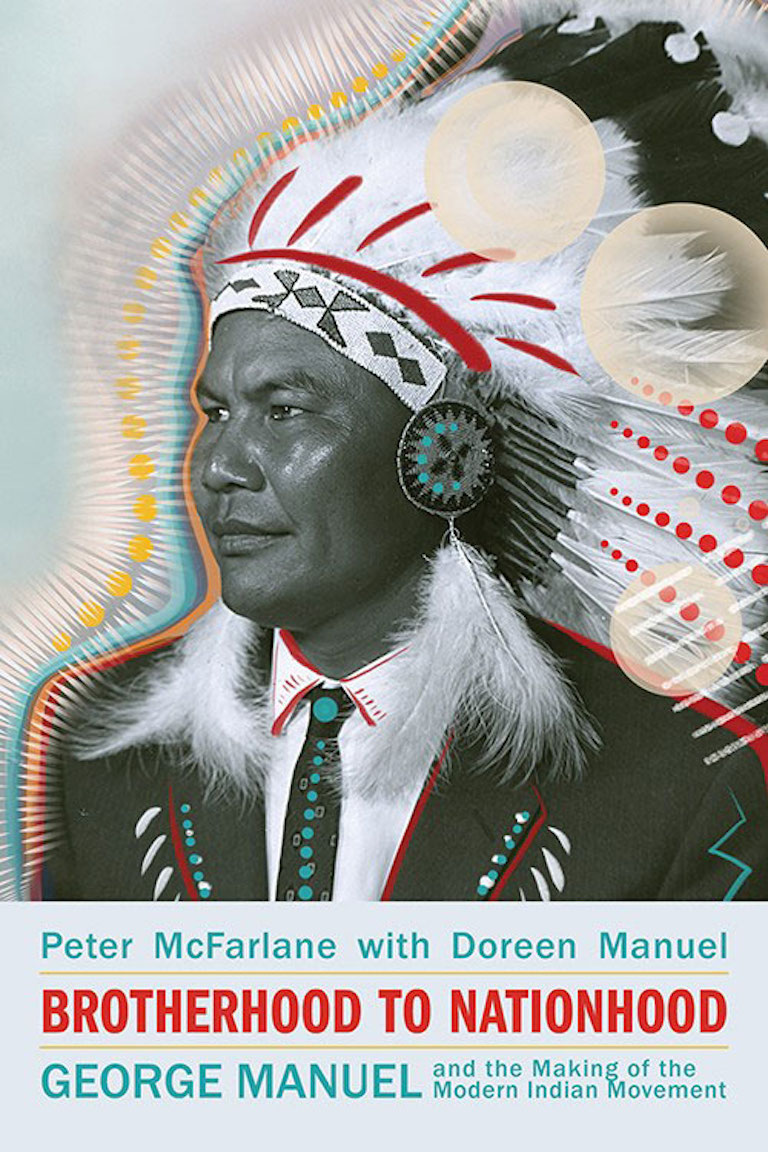
Brotherhood to Nationhood
George Manuel and the Making of the Modern Indian Movement
by Peter McFarlane
A three-time Nobel Peace Prize nominee, George Manuel (1920–1989) was the strategist and visionary behind the modern Indigenous movement in Canada. Charged with fresh material and new perspectives, this updated edition of the groundbreaking biography Brotherhood to Nationhood brings George Manuel and his fighting tradition into the present.
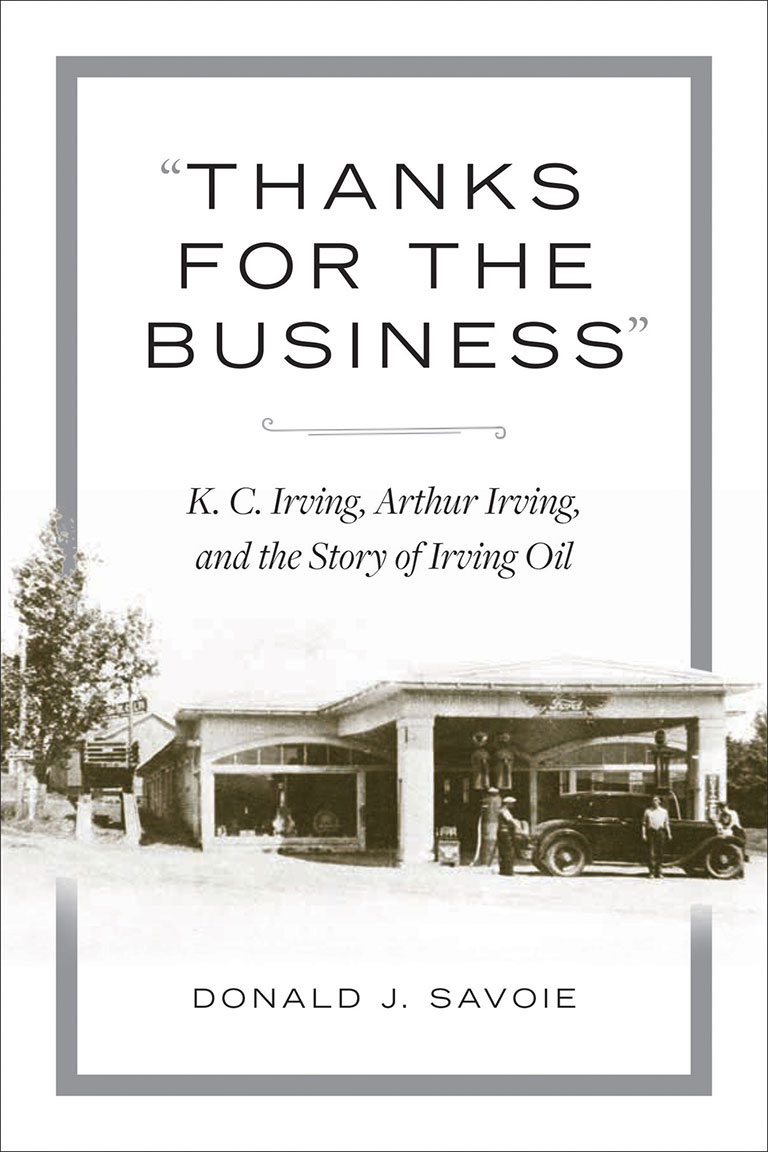
“Thanks for the Business”
K.C. Irving, Arthur Irving, and the Story of Irving Oil
by Donald J. Savoie
Are entrepreneurs born or are they made? “Thanks for the Business” seeks to address this age-old question through the compelling stories of Maritime business tycoons Arthur Irving and K. C. Irving, and the story of Irving Oil. This comprehensive biography holds important lessons for aspiring entrepreneurs, for business schools, for public policy, and particularly for Atlantic Canada.
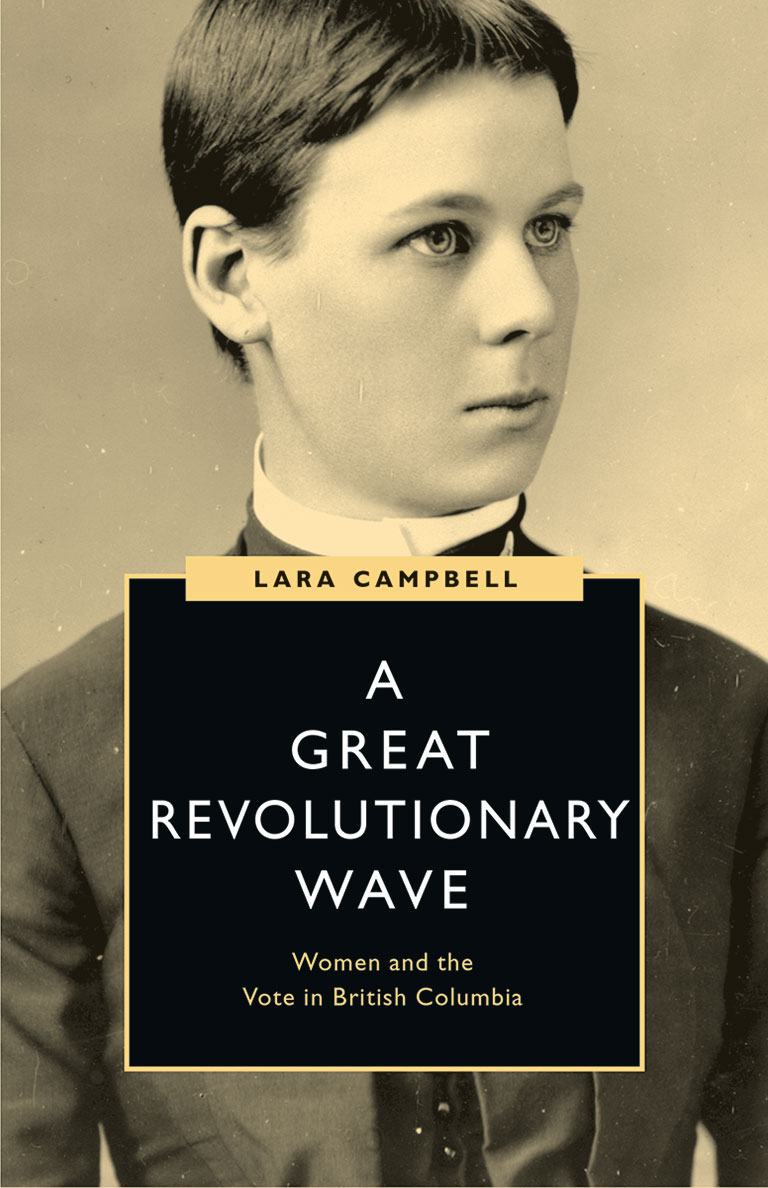
A Great Revolutionary Wave
Women and the Vote in British Columbia
by Lara Campbell
British Columbia is often overlooked in the national story of women’s struggle for political equality. In A Great Revolutionary Wave, Lara Campbell challenges the historical portrayal of suffragists as conservative, traditional, and polite. She traces the role of working-class women in the fight for political equality and examines how racial exclusion and Indigenous dispossession shaped arguments and tactics for enfranchisement.
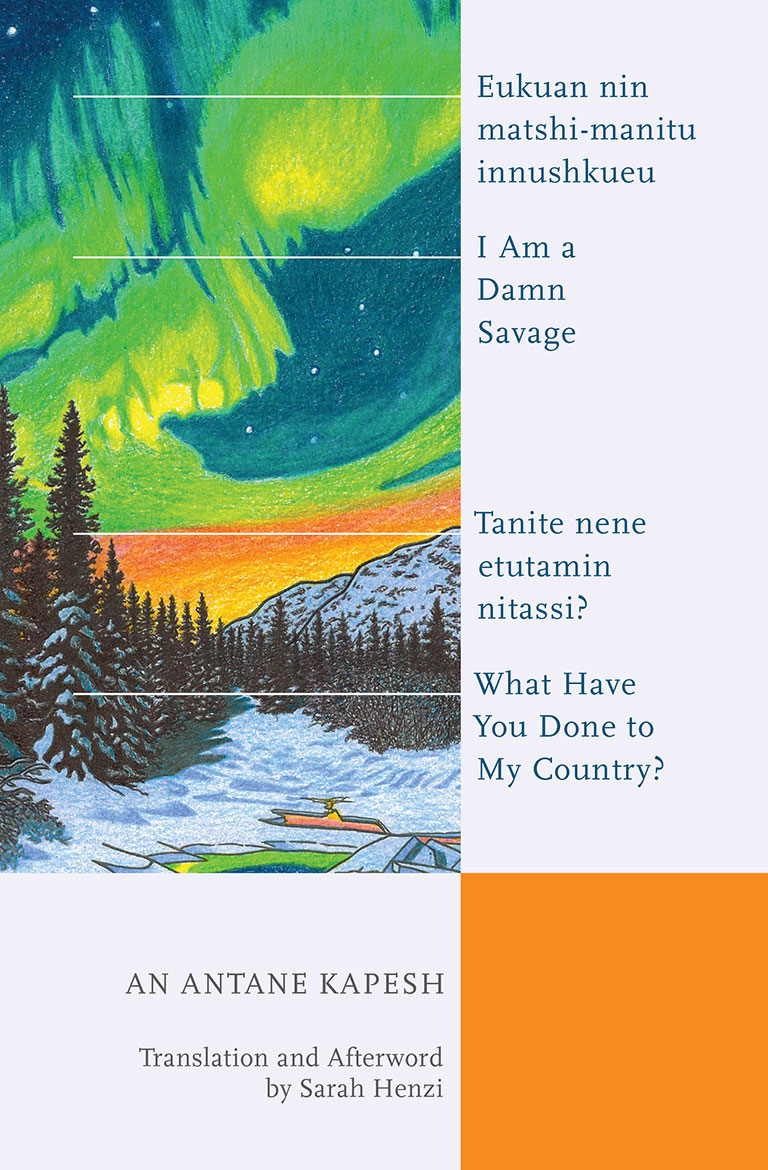
I Am a Damn Savage; What Have You Done to My Country?
by An Antane Kapesh
Quebec author An Antane Kapesh’s two books, Je suis une maudite sauvagesse (1976) and Qu’as-tu fait de mon pays? (1979), are among the foregrounding works by Indigenous women in Canada. This English translation by Sarah Henzi, with each page facing the revised Innu text, makes them available for the first time to a broader readership.
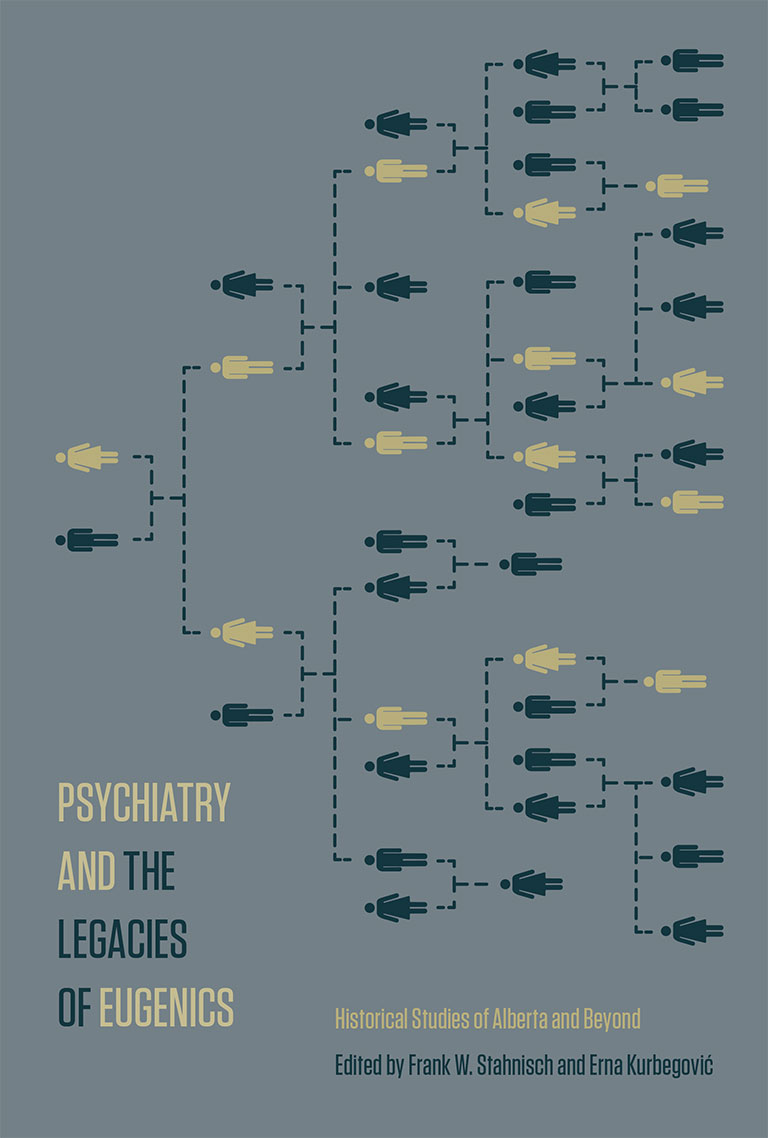
Psychiatry and the Legacies of Eugenics
Historical Studies of Alberta and Beyond
edited by Frank W. Stahnisch and Erna Kurbegović
Psychiatry and the Legacies of Eugenics illustrates how psychiatry and its concerns about inheritable conditions was influenced by eugenic thought and contributed to the longevity of sterilization practices in Western Canada. Contributors trace the impact of eugenics on nursing practices, politics, and social attitudes, while investigating how eugenics discourses persisted unexpectedly and remained mostly unexamined in psychiatric practice.
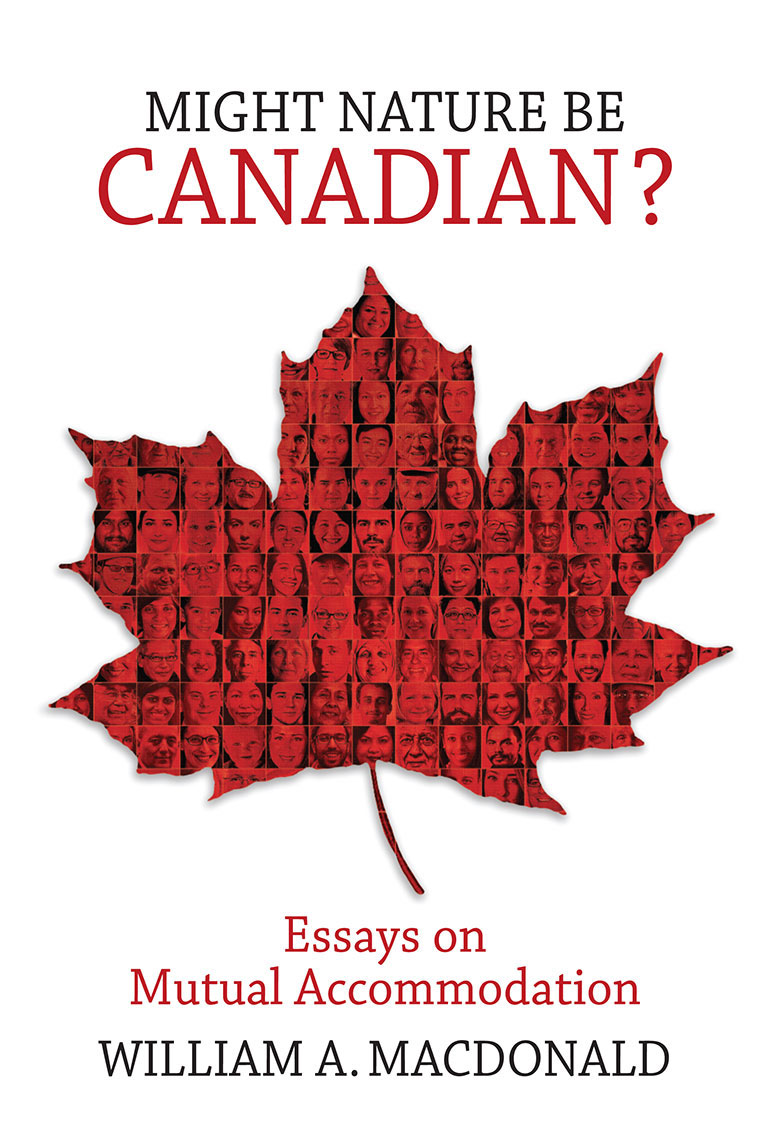
Might Nature Be Canadian?
Essays on Mutual Accommodation
by William A. Macdonald
Mutual accommodation is about co-operation, compromise, and inclusion. It's a big idea, equal to freedom, science, and compassion. Today, to many nations and people, Canada is the model country driven by successful mutual accommodation. In Might Nature Be Canadian? William Macdonald explores the theme of mutual accommodation with a close lens on the Canadian experience.
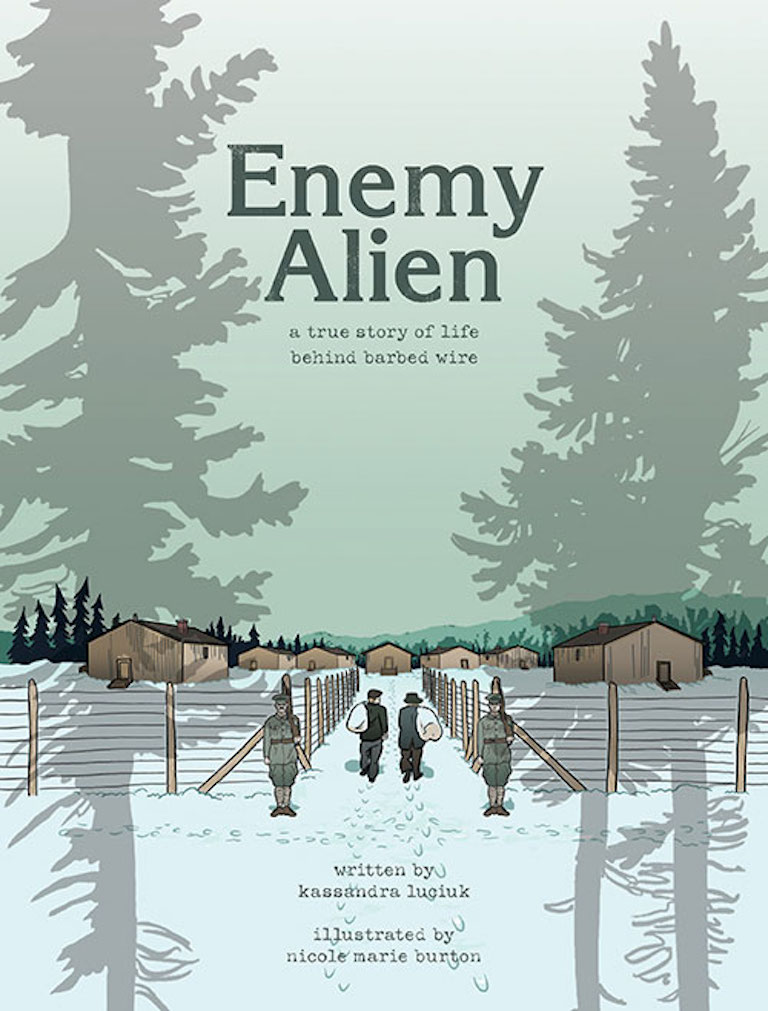
Enemy Alien
A True Story of Life behind Barbed Wire
by Kassandra Luciuk and nicole marie burton
This graphic history tells the story of Canada’s first national internment operations through the eyes of John Boychuk, an internee held in Kapuskasing from 1914 to 1917. Little is known about the lives of the incarcerated once the paper trail stops, but Enemy Alien traces Boychuk’s parole, his search for work, his attempts to organize a union, and his ultimate settlement in Winnipeg.
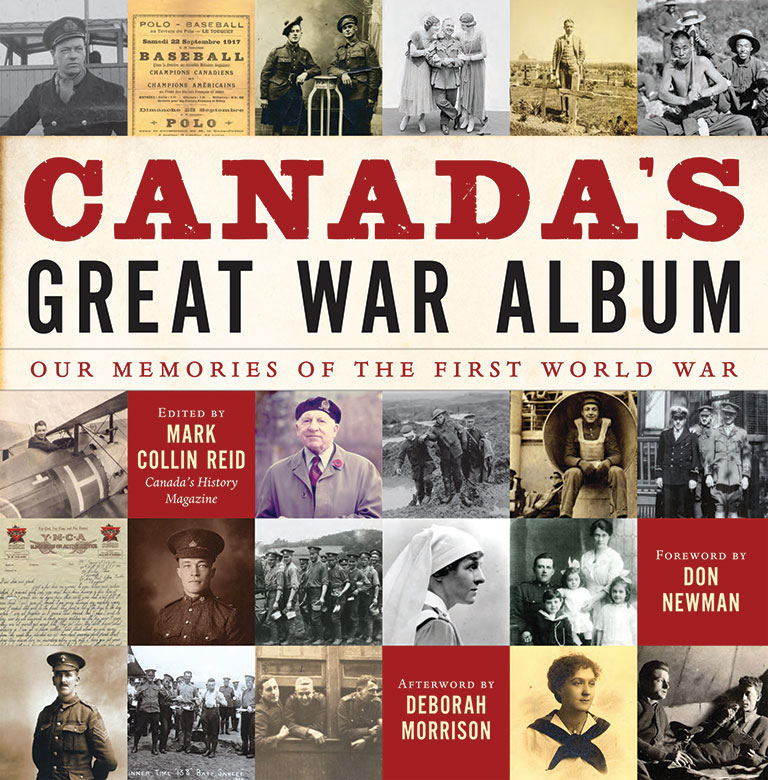
Canada’s Great War Album
Our Memories of the First World War
edited by Mark Collin Reid
Published to coincide with the 100th anniversary of the First World War, Canada’s Great War Album is an unprecedented and remarkable collection of Canadian photographs, memorabilia, and stories of the war. Includes contributions from Peter Mansbridge, Charlotte Gray, J.L. Granatstein, Christopher Moore, Jonathan Vance, and Tim Cook.
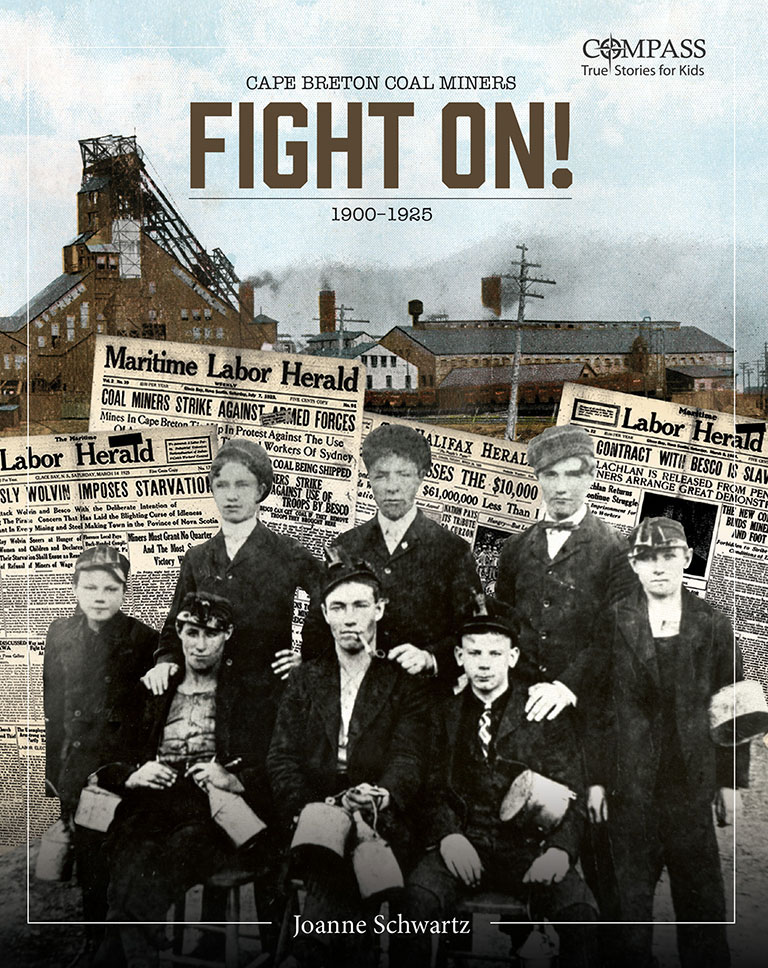
Fight On!
Cape Breton Coal Miners, 1900-1925
by Joanne Schwartz
In early twentieth-century Cape Breton, coal mines stretched far out under the ocean. The workers, mostly men, but also children and ponies, spent all day in the dark, damp mines. So the brave miners took matters into their own hands and stood up to the companies treating them this way. Fight On! tells the stories of these miners and their families, Cape Breton heroes who fought against corporate greed, putting their livelihoods on the line for better conditions and healthier families and communities.
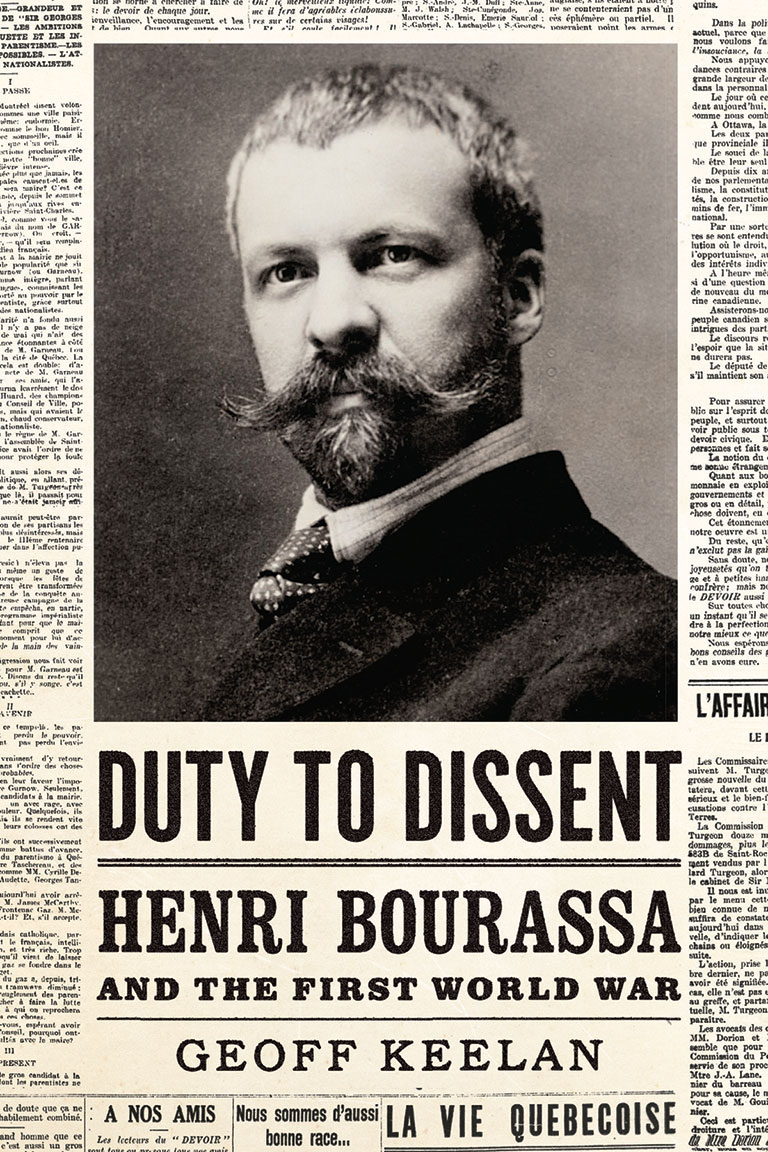
Duty to Dissent
Henri Bourassa and the First World War
by Geoff Keelan
Henri Bourassa — fierce Canadian nationalist, politician, and journalist from Quebec — took centre stage in the debates on Canada’s participation in the First World War, its imperial ties to Britain, and Canada’s place in the world. Geoff Keelan draws upon Bourassa’s voluminous editorials in Le Devoir, the newspaper Bourassa founded in 1910, to trace his evolving perspective on the war’s meaning and consequences.
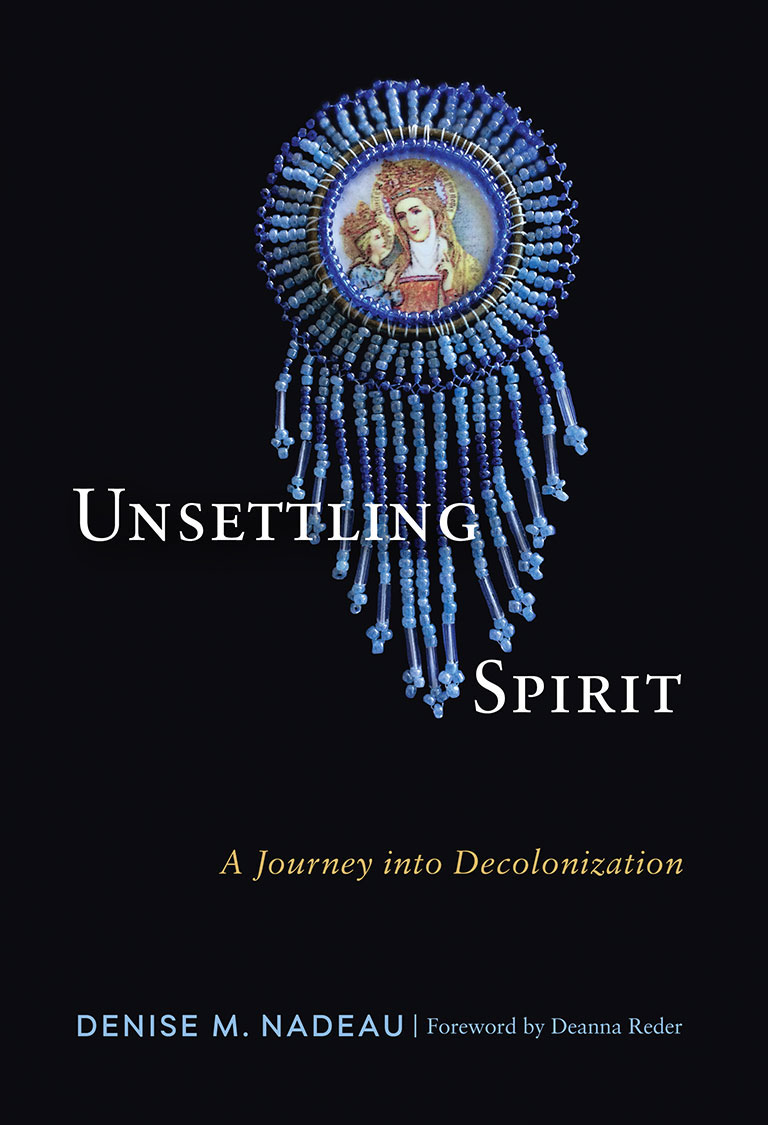
Unsettling Spirit
A Journey into Decolonization
by Denise M. Nadeau
In the context of reconciliation and Indigenous resurgence, Unsettling Spirit provides a personal perspective on decolonization, informed by Indigenous traditions and lifeways, and the need to examine one's complicity with colonial structures. Applying autoethnography grounded in Indigenous and feminist methodologies, Denise Nadeau weaves together stories and reflections on how to live with integrity on stolen and occupied land.
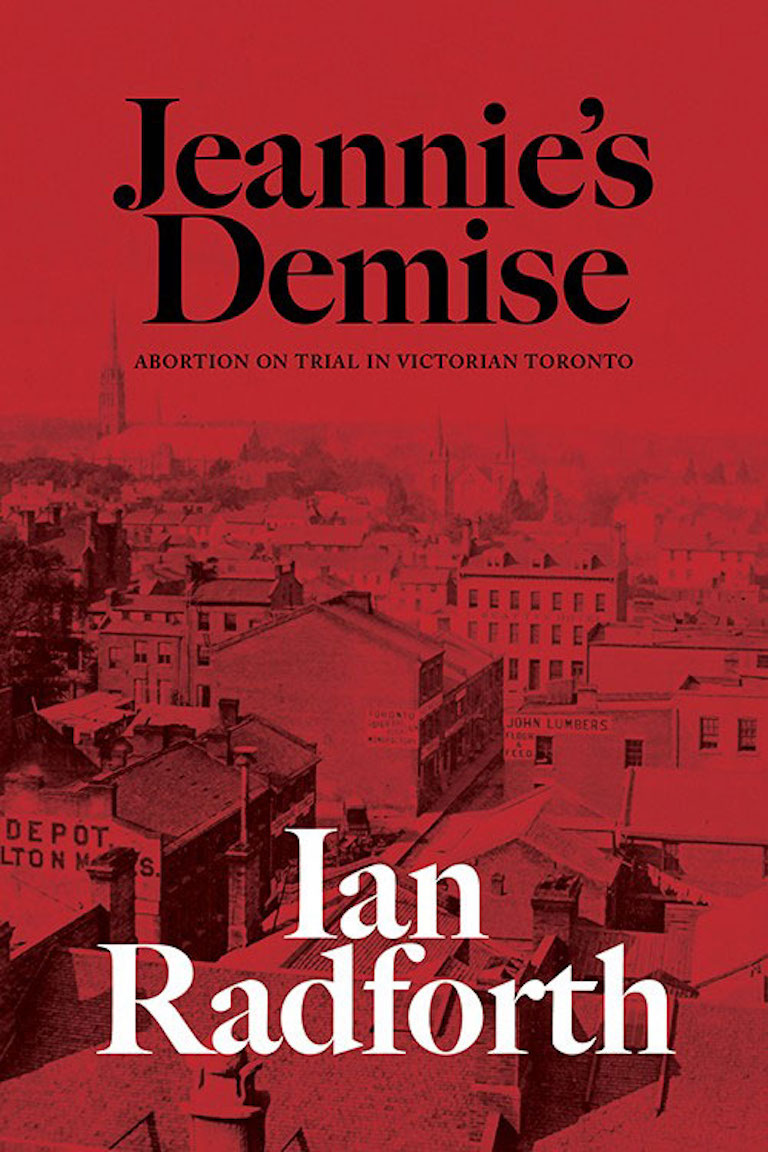
Jeannie’s Demise
Abortion on Trial in Victorian Toronto
by Ian Radforth
August 1, 1875, Toronto: The naked body of a young woman is discovered in a pine box, half buried in a ditch. So begins Jeannie’s Demise, a real-life Victorian melodrama that played out in the bustling streets and courtrooms of “Toronto the Good.” Historian Ian Radforth brings to life an era in which abortion was illegal, criminal proceedings were a spectator sport, and coded advertisements for back-alley procedures ran in the margins of newspapers.
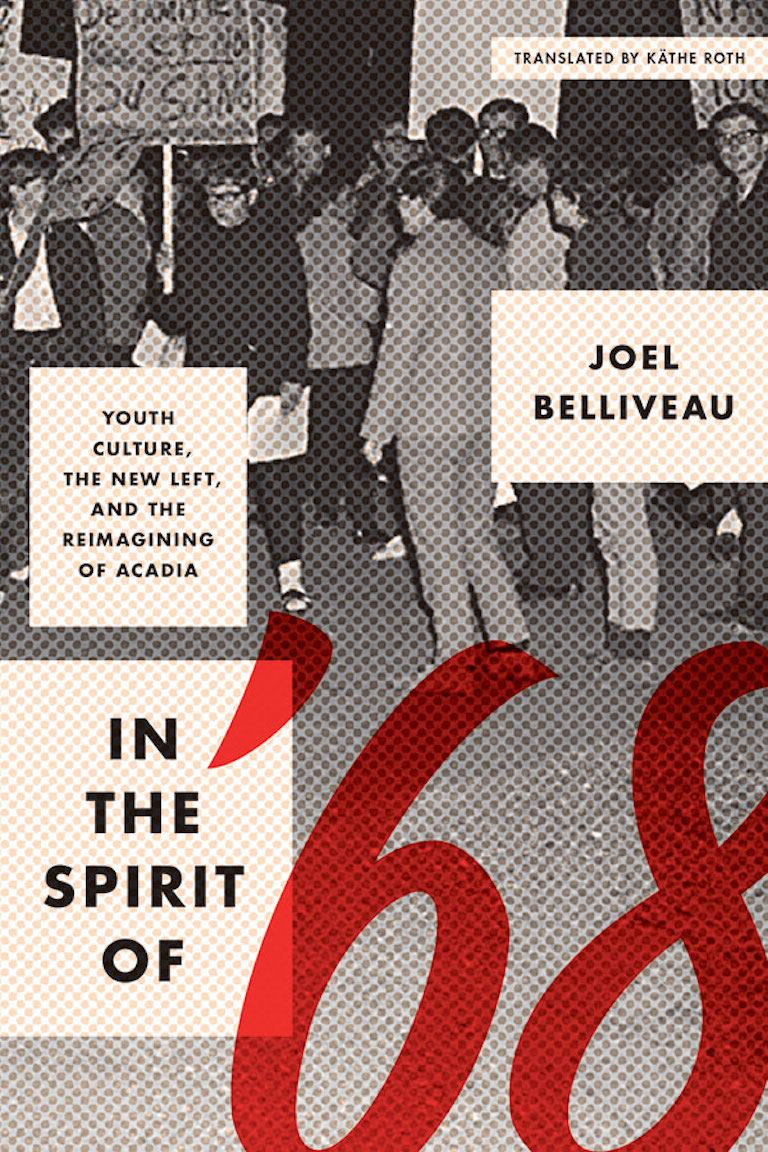
In the Spirit of ‘68
Youth Culture, the New Left, and the Reimagining of Acadia
by Joel Belliveau
In 1968, students protested in the streets of Moncton, New Brunswick, shouting, “We want more French!” Drawing on student papers and rare documentary footage, Joel Belliveau explores what provoked these students to spark a cultural revolution on par with those in English Canada and Quebec.
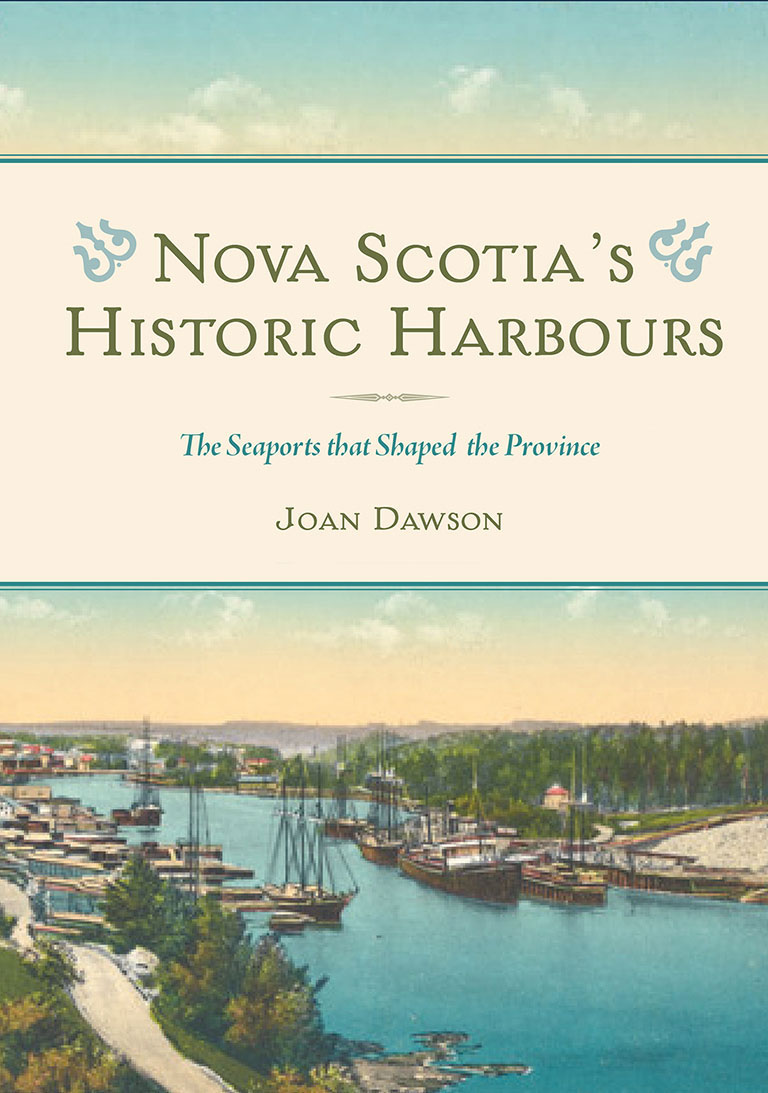
Nova Scotia’s Historic Harbours
The Seaports that Shaped the Province
by Joan Dawson
Bedford Basin, to Shelburne Harbour, to Cobequid Bay, Louisbourg, and Canso — Nova Scotia’s Historic Harbours explores each harbour’s historical significance and transports readers back in time. Trusted historian Joan Dawson looks at how these communities have been shaped by the sea, and how Nova Scotia’s growth has been driven by its harbours.
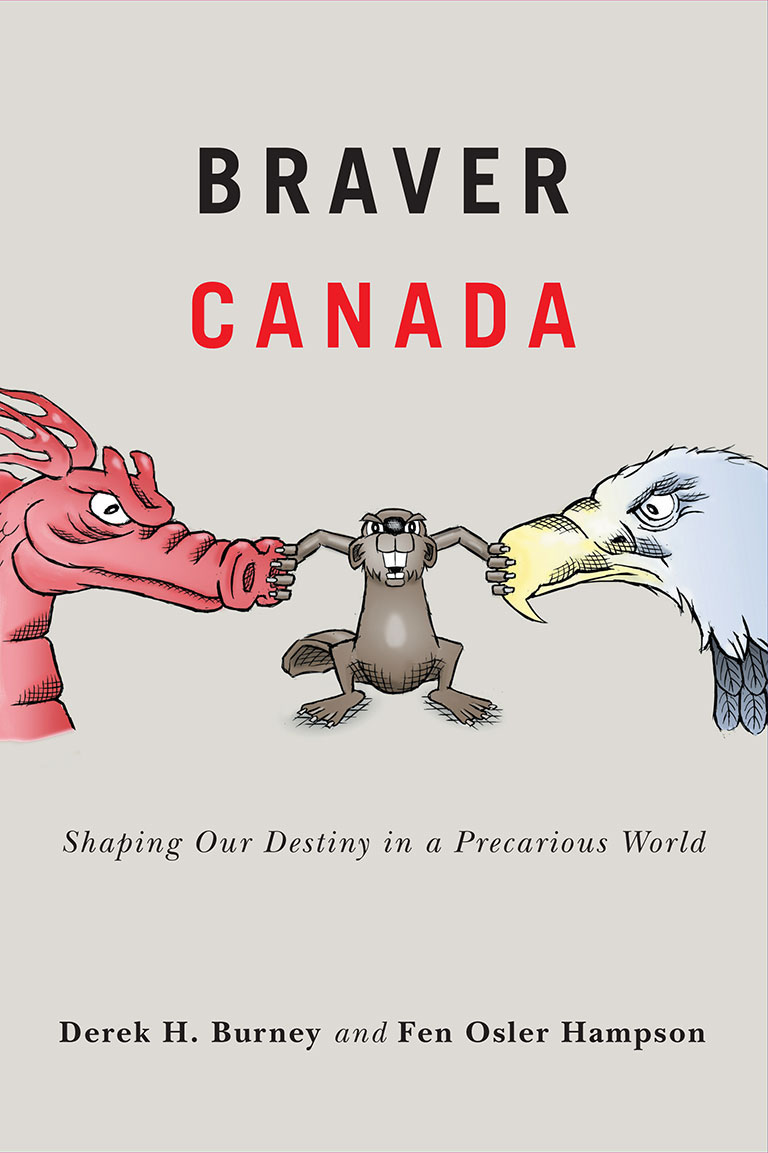
Braver Canada
Shaping Our Destiny in a Precarious World
by Derek Burney and Fen Hampson
The world is changing — geopolitically and economically — at an alarmingly fast pace. Populism, protectionism, and authoritarianism are on the rise. A timely and compelling analysis, Braver Canada lays out the challenges for Canada in a rapidly changing, turbulent world and the strategies required for future prosperity.
Themes associated with this article
Sponsored by

The 2020 Summer Reading Guide is brought to you by publishers from across Canada.
Advertisement

